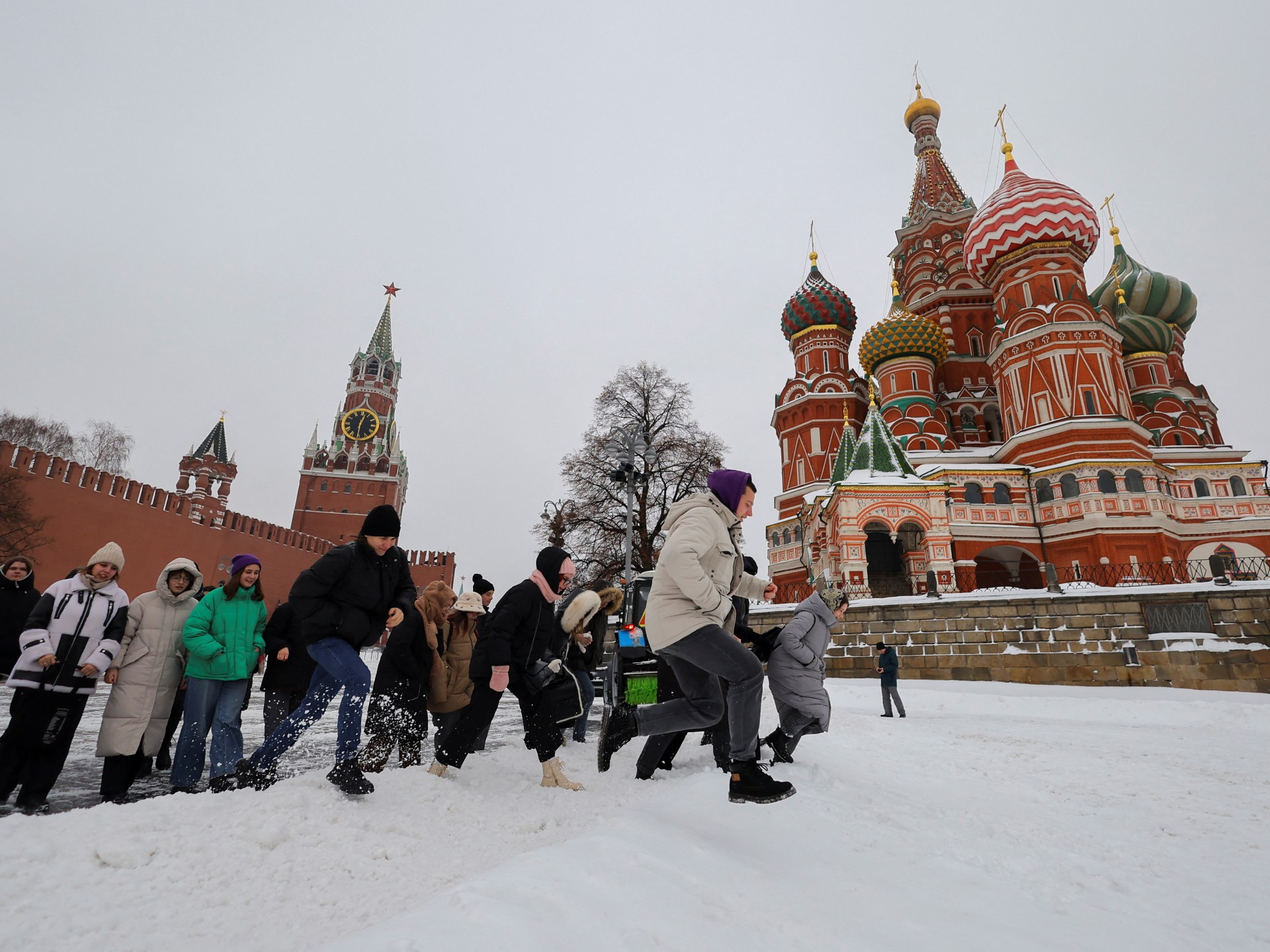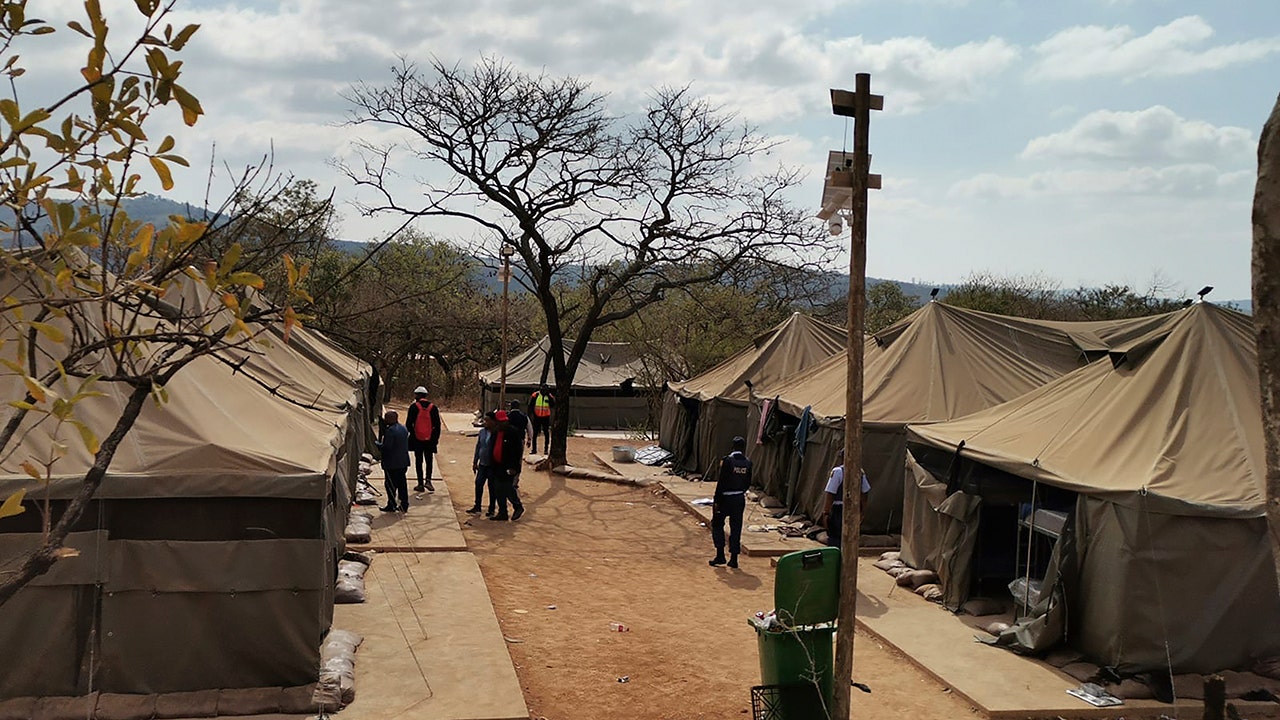World
Russia to require foreigners to sign ‘loyalty agreement’

Russia is reported to be preparing to introduce laws that would require foreign visitors to sign a “loyalty agreement”.
The interior ministry is preparing the legislation that would bar visitors from criticising Russian policy or discrediting Soviet history. It would also require that they respect traditional Russian family values, culture and environment, state news agency TASS reported on Wednesday.
All foreigners would have to sign the pledge, which would, in effect, control what they can say and do while in Russia.
This means visitors would be prohibited from “interfering with the activities of public authorities of the Russian Federation, discrediting in any form the foreign and domestic state policy of the Russian Federation, public authorities and their officials,” the report said.
For the draft to become law, the document has to be introduced to the State Duma, Russia’s lower house of parliament, and to go through committee review and several readings before being submitted to President Vladimir Putin for signing.
Officials told state news agency Interfax that the legislation is being worked on by the interior ministry, the government, and the presidential administration and is well advanced.
Lieutenant General Valentina Kazakova, head of the ministry’s Main Directorate for Migration, told TASS, “The bill is currently under discussion and will be submitted to the State Duma shortly.”
Silent history
In particular, foreigners would be barred from “distorting the historical truth about the feat of the Soviet people in the defence of the Fatherland and its contribution to the victory over fascism,” the draft bill reads, according to TASS.
The triumph over Nazism, under the Soviet leadership of Joseph Stalin, has been constantly compared with Russia’s annexation of Crimea. Putin has utilised this historical moment as an effective tool in his resurgent war on the West and the liberal values mostly associated with it.
Even critics and scholars within Russia, who document his totalitarian regime’s atrocities, have lost access to Kremlin-controlled media and are branded “foreign agents”.
As the 2024 presidential election approaches, Putin has cast the war as part of an existential battle with the West, saying he will defend Russia’s “sacred” civilisation from what he portrays as the West’s decadence.
Traditional family
Under the law, foreigners would have to uphold and abide by “traditional family values”, the “institution of marriage” and “traditional sexual relations”, according to TASS.
Russia under President Putin has touted itself as a country home to more conservative moral and family values, backed by the Russian Orthodox Church.
To this end, the authorities have cracked down on the LGBTQ community, passing legislation outlawing gender-affirming surgeries and banning “gay propaganda”.
Lawmakers, in recent months have also been working on legislation to limit access to reproductive care and abortions as a way of improving the “demographic situation” and countering the low birth rate.
Culture and environment
“The legislative initiative proposes prohibiting activities that encourage a neglectful attitude toward Russia’s environment or natural resources … Russia’s regional and ethno-cultural diversity [and] traditional Russian moral and spiritual values,” reported TASS.
Russia is one of the most ethnically diverse countries in the world with nearly 200 ethnic groups residing on the territory of the Russian Federation, according to the United Nations.
Following the October Revolution in 1917, and the fall of Russia’s imperialist monarchy, Stalin embraced Russian nationalism based on the old imperial myth of the greatness of the Russian people, wrote Botakoz Kassymbekova.
Bolshevik Moscow made ethnic Russians the most privileged group in the Soviet Union and sent Russian settlers to populate and control non-Russian regions.
Since Russia’s invasion of Ukraine, minority groups have accused authorities of using them as fodder for the war.
Reports of men being rounded up highlighted the disproportionate impact the war has had on Russians from impoverished regions and ethnic minorities.
According to data collected by Russian independent media, a number of areas with high minority populations have suffered the most casualties in the war.

World
Celine Dion Makes Triumphant Comeback at Paris Olympics Opening Ceremony — Watch Full Performance

ad
World
95 Libyan nationals arrested in South Africa at suspected secret military training camp

South African police arrested 95 Libyan nationals in a raid on a suspected secret military training camp on Friday and authorities said they were investigating whether there were more illegal bases in other parts of the country.
The camp was discovered at a farm in White River in the Mpumalanga province, about 360 kilometers (220 miles) northeast of Johannesburg, police said.
ELEPHANTS KILL TOURIST IN SOUTH AFRICA AFTER HE TRIED TO GET CLOSE TO TAKE PICTURES
National police spokesperson Athlenda Mathe said in a post on the social media site X that the Libyans stated they had entered the country on study visas to train as security guards, but police investigations suggest they have received military training.
The Newzroom Afrika TV news channel broadcast pictures of the site of the arrests, showing a military-style camp with large green and khaki tents set up in a row. Dozens of men were seen lining up as they were arrested. They were wearing civilian clothing.
Local government official Jackie Macie said investigations were ongoing and the owner of the farm would be questioned. He said authorities received information that there were similar secret camps near two other towns in Mpumalanga province.
A camp where 95 Libyan nationals were arrested on suspicion of running an illegal military camp are seen lining up after their arrest on Friday, July 26, 2024 in White River, South Africa. Police say that 95 Libyan nationals were arrested on suspicion of receiving training at a secret military camp in the north of the country. (AP Photo/Bulelwa Maphanga)
The province borders neighboring countries Mozambique and Swaziland and is an area of concern for South African authorities with regards to illegal immigration.
Police and authorities have not said whether the camps are suspected of being connected to a particular group or conflict.
Macie said investigations would establish if there was a network of camps in South Africa and show “why they are here doing military training in our country.”
Police said the men may be linked to crimes reported in communities close to the farm in recent months.
“We have serious cases which have been opened with the police, including cases of rape and armed robberies, which complainants claim were committed by unknown foreigners who seem to be of Asian descent,” said police spokesman Donald Mdhluli.
“We take what we have found here today very seriously because we don’t know who was training them, what were they being trained for and why that training is happening here in South Africa. It may be a threat not only to South Africa but also to the entire southern Africa region.”
Police said the operation to arrest the Libyans and close down the camp began two days ago. Macie said the Libyan nationals had been in the country since at least April.
“The 95 individuals taken into custody are all Libyan nationals and are currently being questioned by the relevant authorities,” Mpumalanga acting provincial police commissioner Maj. Gen. Zeph Mkhwanazi said in a statement.
Mdhluli, the police spokesman, said the country’s security regulator had confirmed that the kind of training that appears to have been taking place at the camp was well beyond the scope of training for security guards.
“The kind of equipment we found here shows that there was intense military training taking place here. This was basically a military base.”
World
Passengers face long, uncertain wait at stations amid rail disruption

A deliberate fire in a signal box about 60 km south of Lille caused the disruption on the northern high-speed line, with traffic halted around 5 a.m. local time on Friday.
Travel was severely disrupted in Lille on Friday, one of the stations affected by the sabotage that hit major French rail lines ahead of the Paris Olympics opening ceremony.
Many passengers waited with hope that soon turned to resignation.
“We’ve been waiting since 10:38 a.m. for the 11:38 a.m. train, and now we’re just waiting for it to arrive at 2:08 p.m.,” said Delphine, one of the stranded passengers.
“It’s still quite a delay, and we’ll be even later since we’re on a secondary route. I work in Avignon at 9 p.m., so it’s going to be very, very tight. We have a concert tonight — will it even happen? This is all very confusing, and we don’t understand what’s going on.”
For one traveller, this was a rough start to the holidays. “The worst case would be if the train is cancelled entirely and we have to buy new tickets for next week. It would shorten our already brief vacation. That would be a huge problem,” said Hippolyte.
When asked if he had been informed of the delays, Hippolyte said he received the notification just before departure.
“At around 10 a.m. this morning, we were told we were an hour late and would be leaving at 1 p.m.”
“It just keeps getting later as the day goes on. Every time we approach the new departure time, it gets pushed back another hour and a half, or half an hour each time.”
A deliberate fire in a signal box about 60 km south of Lille caused the disruption on the northern high-speed line. Traffic was halted around 5 a.m. on Friday.
The recent acts of sabotage on the rail network highlight that the Olympic Games are turning France into a prime target.
The attack disrupted the transport system on the opening day of the Games, causing delays of up to two hours or even cancellations that affected hundreds of thousands of passengers nationwide.
Authorities in Paris have said they are deploying substantial human resources to counter any threats and to ensure the safety of the events.
-

 World1 week ago
World1 week agoOne dead after car crashes into restaurant in Paris
-

 Midwest1 week ago
Midwest1 week agoMichigan rep posts video response to Stephen Colbert's joke about his RNC speech: 'Touché'
-

 News1 week ago
News1 week agoVideo: Young Republicans on Why Their Party Isn’t Reaching Gen Z (And What They Can Do About It)
-

 Movie Reviews1 week ago
Movie Reviews1 week agoMovie Review: A new generation drives into the storm in rousing ‘Twisters’
-

 News1 week ago
News1 week agoIn Milwaukee, Black Voters Struggle to Find a Home With Either Party
-

 Politics1 week ago
Politics1 week agoFox News Politics: The Call is Coming from Inside the House
-

 News1 week ago
News1 week agoVideo: J.D. Vance Accepts Vice-Presidential Nomination
-

 World1 week ago
World1 week agoTrump to take RNC stage for first speech since assassination attempt


















